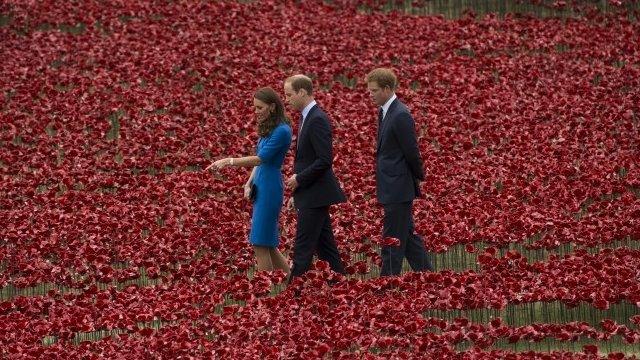David Cameron 'welcomes' Tower of London poppy debate
- Published
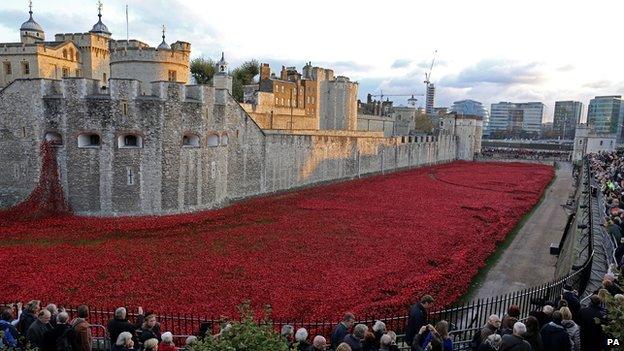
The installation Blood Swept Lands And Seas Of Red is the work of ceramic artist Paul Cummins
The Prime Minister has entered the debate on whether the Tower of London's field of ceramic poppies should remain beyond Armistice Day.
London's mayor Boris Johnson suggested the huge popularity of the memorial to British war dead meant it could be kept for longer than planned.
David Cameron's official spokesman said he "welcomes" the discussions.
But artist Paul Cummins said he would rather his creation did not stay in place beyond 12 November.
The Royal British Legion has said it hopes the sale of the poppies will raise in excess of £15m.
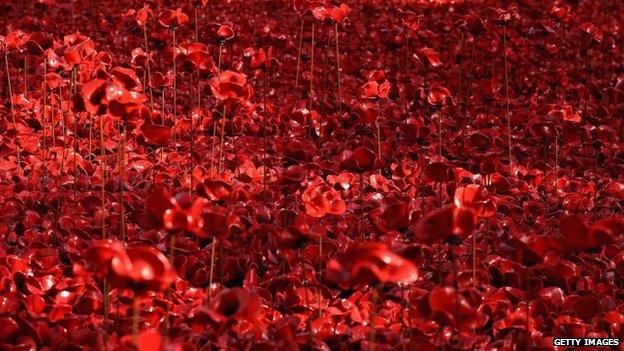
The idea behind the project came from the will of a WW1 soldier from Chesterfield, Derbyshire, the artist said
Chancellor George Osborne has agreed to waive the £1.1m VAT from the poppy sales, using money from Libor fines collected form the banks.
"Each one of these poppies brought from their Derby factory to the Tower of London represents a British soldier who answered the call from their country a century ago and made the ultimate sacrifice," he said.
All net proceeds plus 10% of every £25 poppy sold will be shared between six service charities, including Help for Heroes and the Royal British Legion.
Up to four million people are expected to have visited before 12 November, when there will be 888,246 ceramic poppies - one for each British and colonial death during World War One.
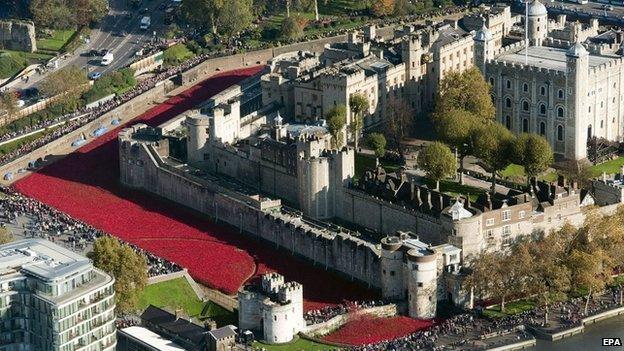
The installation has drawn huge crowds to the Tower of London
Asked whether David Cameron shared the belief that the possibility of an extension should be explored, the Prime Minister's official spokesman said: "He welcomes the fact that there are discussions under way."
Mr Johnson said: "The poppy field at the Tower is a unique and poignant focus of remembrance in this centenary year.
"It has grown rapidly in popularity, to such an extent that it is now a global visitor attraction.
"I'm keen to explore whether we can keep the exhibition open for longer, to give as many people as possible the chance to glimpse something so incredible."
A spokeswoman for the mayor said he was in discussion with Historic Royal Palaces, the agency which runs the Tower of London, about extending the exhibition for a further week.
David Cameron says the numbers who have been to see poppy display at the Tower of London are "truly extraordinary"
Entitled Blood Swept Lands And Seas Of Red, the installation is the work of ceramic artist Mr Cummins, from Derbyshire, who said he believes all the poppies have been sold.
He said he never intended the installation to be permanent as it was meant to symbolise that human beings are "transient".
"The idea was it will only be there for a finite time like we are," he said.
"It will be nice to keep it here but it isn't mine anymore - it belongs to the world now."
He said the idea behind the project came from a will written by a soldier from his hometown of Chesterfield, in which he wrote everyone around him was dead and there was blood covering the ground.
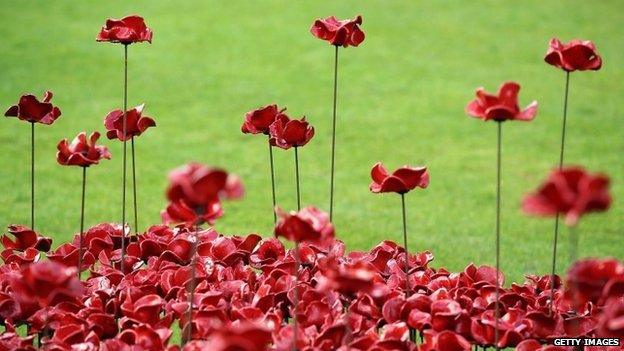
Each poppy planted in the Tower of London's moat represents a WW1 military fatality
Historic Royal Palaces said it was always the intention to begin sending the poppies - which have been sold for charity - to their new owners after Armistice Day on 11 November.
"We have been overwhelmed by the support from the public for our installation of ceramic poppies at the Tower of London," a spokeswoman said.
"It has always been intended the poppies will be in place until 11 November and after this time they will be cleaned and sent out to all those that have purchased them."
In Parliament, Prime Minister David Cameron said the number of people who had been to see the poppy display was "truly extraordinary" and something the "country could be very proud of".
- Published5 November 2014
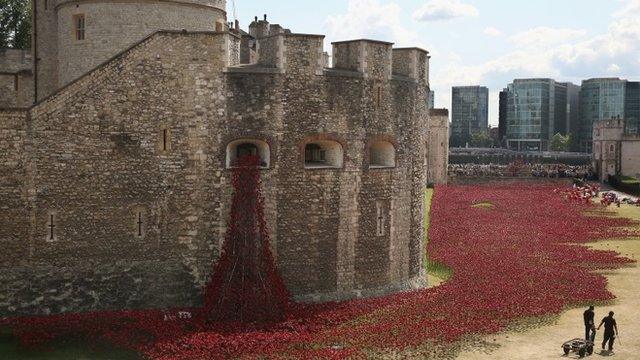
- Published31 October 2014
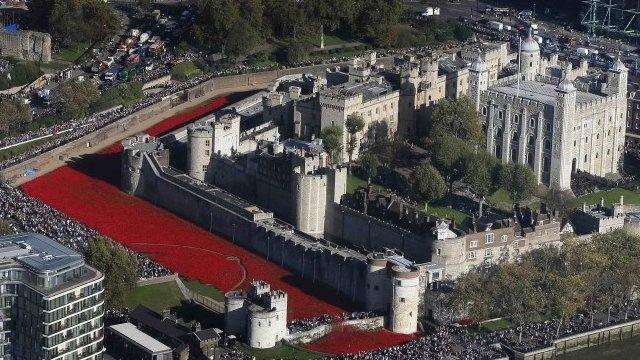
- Published5 August 2014
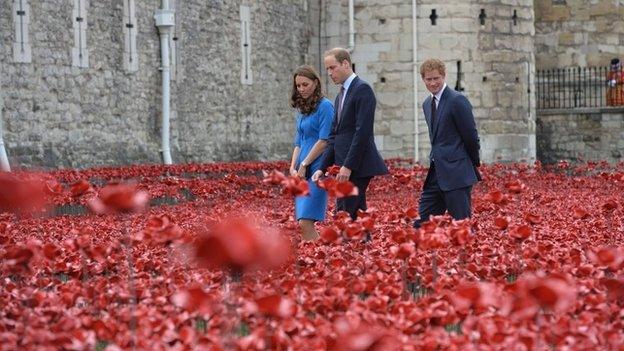
- Published5 August 2014
